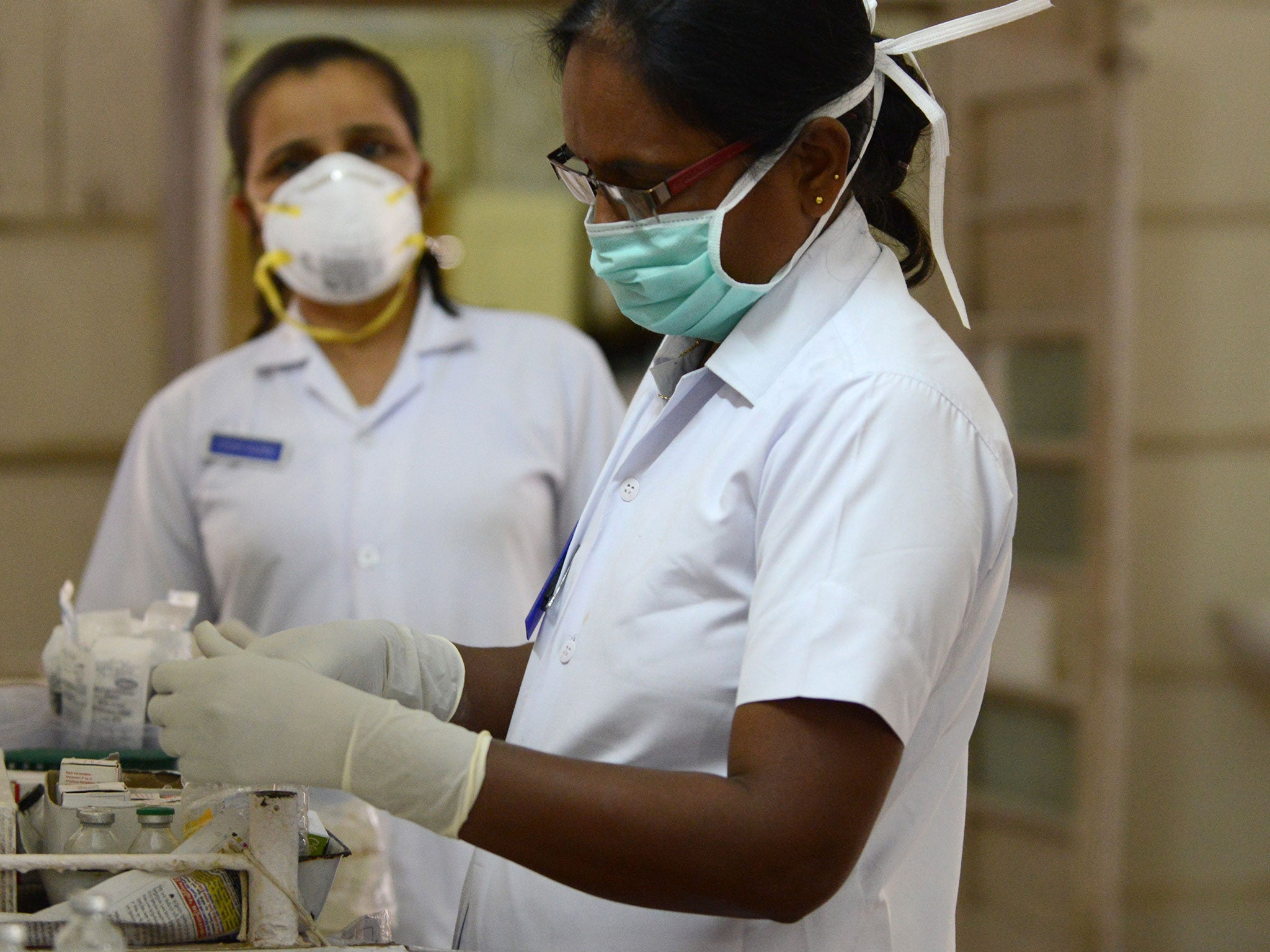India mass sterilisation: Eleven women die and 17 critical after free operations in government-run programme to slow population growth
Villagers claim 83 women underwent tubectomy operations in six hours

Your support helps us to tell the story
From reproductive rights to climate change to Big Tech, The Independent is on the ground when the story is developing. Whether it's investigating the financials of Elon Musk's pro-Trump PAC or producing our latest documentary, 'The A Word', which shines a light on the American women fighting for reproductive rights, we know how important it is to parse out the facts from the messaging.
At such a critical moment in US history, we need reporters on the ground. Your donation allows us to keep sending journalists to speak to both sides of the story.
The Independent is trusted by Americans across the entire political spectrum. And unlike many other quality news outlets, we choose not to lock Americans out of our reporting and analysis with paywalls. We believe quality journalism should be available to everyone, paid for by those who can afford it.
Your support makes all the difference.Eleven Indian women have died and at least 17 others are in a critical condition after undergoing sterilisation surgery in a free government-run programme to help slow the country’s population growth.
A total of 83 women, all villagers under the age of 32, had the operations on Saturday in a hospital outside Bilaspur in the central state of Chhattisgarh, officials said. All 83 surgeries were conducted within six hours, said the state’s chief medical officer, Dr S K Mandal. “That is not usual,” he said. He declined to comment further on what might have gone wrong until the post-mortem examinations of the victims.
The women were sent home on Saturday evening after their surgeries, but more than two dozen were later rushed in ambulances to private hospitals after becoming ill. By today, eleven of the women had died – apparently from either blood poisoning or haemorrhagic shock, which occurs when a person has lost too much blood, the state deputy health director, Amar Singh, told the Press Trust of India news agency.
“Reports of a drop in pulse, vomiting and other ailments started pouring in on Monday from the women who underwent surgery,” Sonmani Borah, the commissioner for Bilaspur district where the surgery took place, told the AFP news agency.
Seventeen other women were in critical care, according to the district magistrate, Siddharth Komal Pardeshi.
“Their condition is very serious. Blood pressure is low,” said Dr Ramesh Murty at Cims hospital, one of the facilities where the sick women were taken. “We are now concentrating on treating them, not on what caused this.”
The state has ordered an investigation, with Chhattisgarh’s health minister, Amar Agrawal, saying that a committee had been established to investigate the incident, but added: “At the moment we are concentrating on giving proper medical care to the women.”
Dr Raman Singh, the chief minister of Chhattisgarh, said that compensation worth thousands of pounds had been offered to families of the deceased women, with compensation of around 50,000 rupees, or around £500, to all other patients. India’s Prime Minister, Narendra Modi, has spoken to the chief minister and asked him “to ensure a thorough investigation”.
The state’s doctors met to discuss whether to continue the sterilisation programme, Dr Mandal said. A spokeswoman for the federal health ministry declined to confirm whether the central government was setting sterilisation quotas for states. India’s central government had said it stopped setting targets for sterilising women in the 1990s.
Activists blame alleged sterilisation quotas for leading health authorities to pressure patients into surgery rather than advising them on other forms of contraception.
“These women have become victims because of the target-based approach to population control,” said Brinda Karat, of the All India Democratic Women’s Association, while demanding that the state’s health minister resign.
India’s government – long concerned with fast growth in a country whose population has reached 1.3 billion – offers free sterilisation to both women and men who want to avoid having a baby, though the vast majority of patients are women. In many cases, they are offered a one-time payment for undergoing surgery of around £6 to £12.
India has the world’s highest rate of sterilisation among women, with about 37 per cent undergoing such operations compared with 29 per cent in China.
AP
Subscribe to Independent Premium to bookmark this article
Want to bookmark your favourite articles and stories to read or reference later? Start your Independent Premium subscription today.
Join our commenting forum
Join thought-provoking conversations, follow other Independent readers and see their replies
Comments